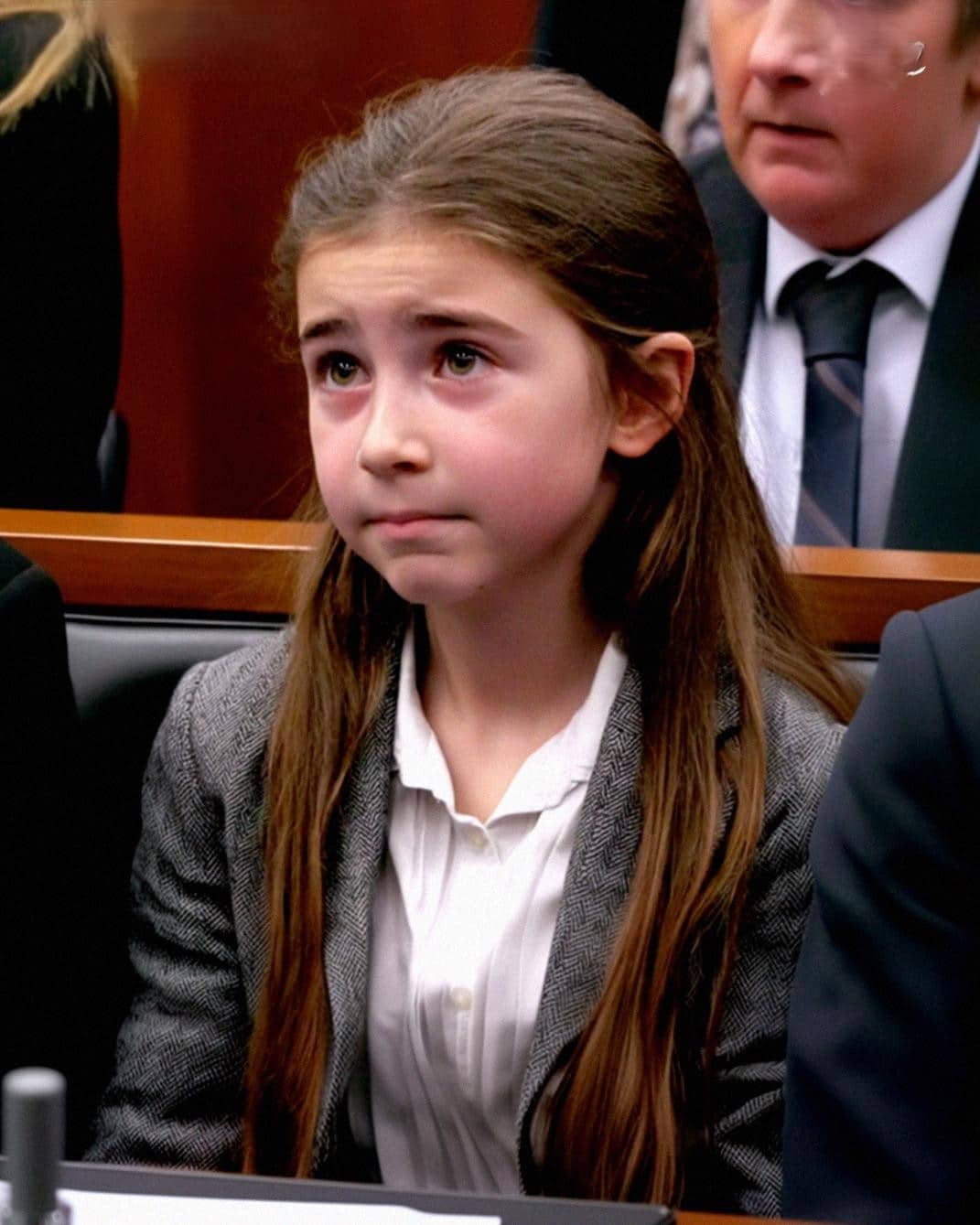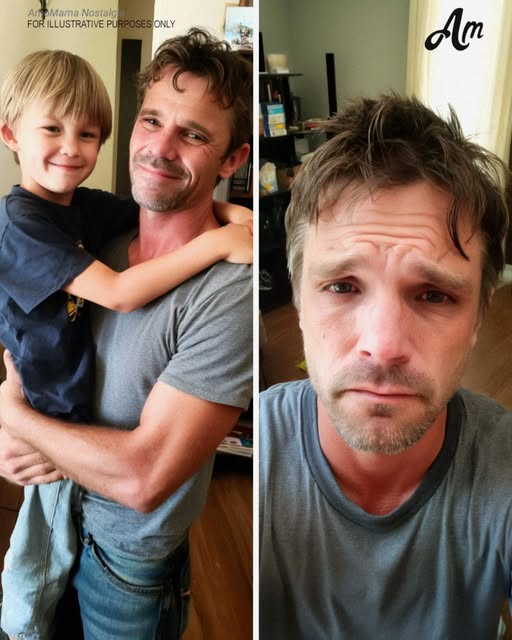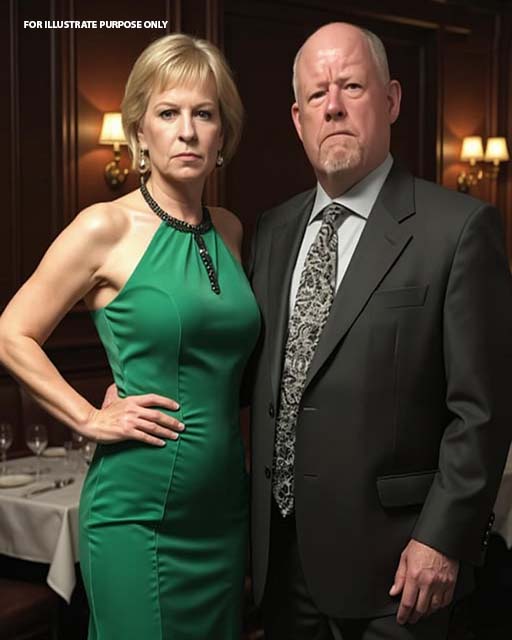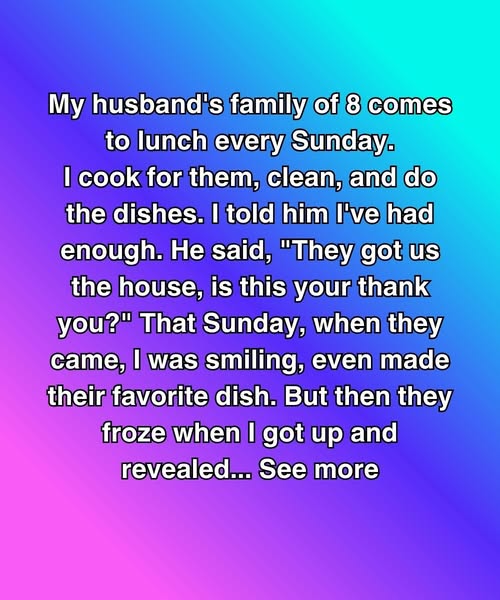I’m 35, and last week I sat through the longest two hours of my life.
Daniel and I split two years ago after the kind of betrayal you can smell before you see—late “work” nights, a shirt that came home with lipstick he swore was “ketchup,” and the sudden way his phone always needed to be face-down. We have two kids—Emily, 10, who reads under the covers with a flashlight and thinks I don’t know, and Jack, 7, who narrates everything he does like he’s the star of a wildlife documentary.
After the divorce we did the split that looks decent on paper. I handled real life: permission slips, dentists, the smell of science projects that should’ve been thrown away a week ago, spelling words, Tylenol at 2 a.m., cupcakes for class when I’d already worked a full day. Daniel became the weekend highlight reel. He’s great at selfies in front of roller coasters, great at captions like #BestDadEver. I used to joke that his co-parenting style was “confetti cannon.”
Then, a few months ago, he filed for full custody.
His lawyer used all the words designed to make a woman small: unstable, too emotional, unable to provide the lifestyle “these children deserve.” Translation: I don’t buy loyalty with gadgets and upgrades. He does.
And suddenly there were gadgets and upgrades everywhere. Emily showed up after a visit with a brand-new iPhone in a pink glitter case, earbuds to match. Jack came home with a PS5 and games stacked like pancakes. There were amusement park passes, fancy dinners, a “surprise” puppy handed over with a look at me that said checkmate. He bent down to the kids’ level, voice warm, “This is just the beginning if you choose me.”
I stopped sleeping. You can tell yourself that love wins, that kids know where they’re safe, but then you watch a 10-year-old stroke a new phone the way other people pet kittens, and you feel very, very poor.
On the morning of court, I put on the only suit I own and tried to smooth the worry lines off my forehead. Daniel arrived smelling like a department store and a victory parade. His lawyer had glossy photos: big smiles, new puppy, perfect weekends laminated into “evidence.” The judge’s face didn’t give much away, but he nodded a couple of times and my throat went tight.
Then the judge asked whether the children wanted to speak.
Techically they didn’t have to, but Emily stood anyway. Her hands trembled. She did that little lift of her chin she gets from me, a tiny act of defiance that reads like courage.
“Your Honor,” she said, voice small but steady, “you have to know the truth about our dad.”
The room went so quiet I could hear the wall clock.
“Dad told his girlfriend he doesn’t even want us,” she continued, eyes flicking to me for a second like a lifeline before she went on. “I heard him on the phone. He needs us so Grandma will give him her mansion and millions. And then he’s sending us to boarding school so he doesn’t have to deal with us.”
The oxygen left the room.
She swallowed and pushed forward. “He promised me a car when I turn sixteen if I said I wanted to live with him. He said we could have anything we wanted if we were good today. He gave us a puppy yesterday to prove it.”
Jack, who still had a Band-Aid on his knee from falling off his scooter, shuffled closer to his sister like he’d been waiting for his cue. “He said we wouldn’t have to see our ‘boring’ mom anymore if we picked him,” he added, wiggling his fingers in air quotes. “’Cause she has too many rules.”
The judge’s eyes softened. “Thank you for telling me,” he said. “Who do you want to live with?”
Jack looked at Emily. Then they both looked at me.
“We love our dad,” Jack said, honest as sunrise. “We like gifts and Disney. But we pick Mom.”
Daniel’s chair creaked. He tried to recover, words already slippery. “Your Honor, children misunderstand—”
“No,” the judge said, voice like a door clicking shut. “I’ve heard enough.”
He spoke for another three minutes—about stability, about primary caregivers, about how a parent’s job is to love, not to leverage. He ordered that full custody remain with me, with structured visitation for Daniel, and directed counsel to address child support and alimony in accordance with his findings.
I didn’t cry in that moment. I think I’d cried so much beforehand there was nothing left. I just squeezed Emily’s hand until she shot me a look that said, Mom, I need these fingers for piano.
After, word spread the way it always does in a family: faster than Wi-Fi, louder than a whisper. Daniel’s mother called me two days later and asked for tea. She arrived in a pressed blouse and eyes that looked like a storm rolling in. She listened without interrupting. When I finished, she closed her hands around her mug and stared at the steam like it might be able to tell her what to do.
“I’m ashamed,” she said finally. Not of me. Of him. Within a month, the promise that had been Daniel’s north star—his mother’s mansion and everything that came with it—was gone. She updated her will. Half of her estate now goes to charity. The other half is tucked into trusts for Emily and Jack that he can’t touch.
There wasn’t any gloating in it. Just a kind of sad, fierce correction: love is not collateral.
At home, real life carried on. The puppy, who had been “proof,” became chaos and then family. We named her Pepper, because she’s loud in small doses and makes everything better. We had hard conversations, too. I told the kids I would never ask them to choose in a way that hurt them. They told me they hated being bribed. We set up a jar on the counter where they can put folded notes any time they hear adults say something that feels wrong. We read them together once a week. We talk. We don’t keep secrets to protect grown-ups.
One night, while I was folding yet another load of laundry that seems to multiply on its own, Emily came into my room and sat on the edge of the bed.
“Did I ruin everything?” she asked.
“No,” I said, and turned so she could see my face. “You told the truth. That’s how we fix things, even when it’s messy.”
“It felt like choosing,” she whispered.
“It was choosing,” I said. “It was choosing safety. That’s my job, but you did it, too.”
She nodded, like maybe that could be true.
Daniel still visits. He brings fewer packages now, more apologies. He is not a villain; he’s a man who let money dress up as love and then was shocked when it didn’t fit. The kids like him best when he sits on the floor and lets Pepper lick his ears and laughs so hard he forgets to check his phone. I like him best when he leaves on time and doesn’t make promises he can’t keep.
Sometimes, late at night when the house is finally quiet and Pepper is snoring on my feet, I think about the courtroom version of us—the suits, the lawyers, the judge with the careful voice—and then I think about breakfast the next morning: the uneven pancakes, the last-minute hunt for library books, the way Jack insists the puppy understands English if you say it slowly. That’s where custody really happens. Not in orders and schedules, but in the thousand small, unglamorous ways you show up.
People keep telling me I “won,” and I understand what they mean. But the thing that keeps echoing is my daughter standing in a room full of adults and choosing truth over ease, love over glitter. I didn’t teach her that in one big moment. I taught it by standing in the kitchen at midnight cutting dinosaur sandwiches for a field trip, by saying no to a game console and yes to one more chapter, by apologizing when I snapped and trying again.
We’re okay. Not because a judge said so—though I’m grateful he did—but because my kids remembered who we are when someone tried to sell them a different story.
If you’re in the middle of your own version of this, here’s what I learned: kids see more than you think, and they will climb toward honesty if you give them something sturdy to grab. Money buys a lot. It does not buy bedtime. It does not buy the person who knows which stuffed animal lives under which pillow. It does not buy the one who shows up when the fever spikes or the project explodes or the heart breaks.
It turns out, that’s the lifestyle children deserve. And it’s one I can afford.




